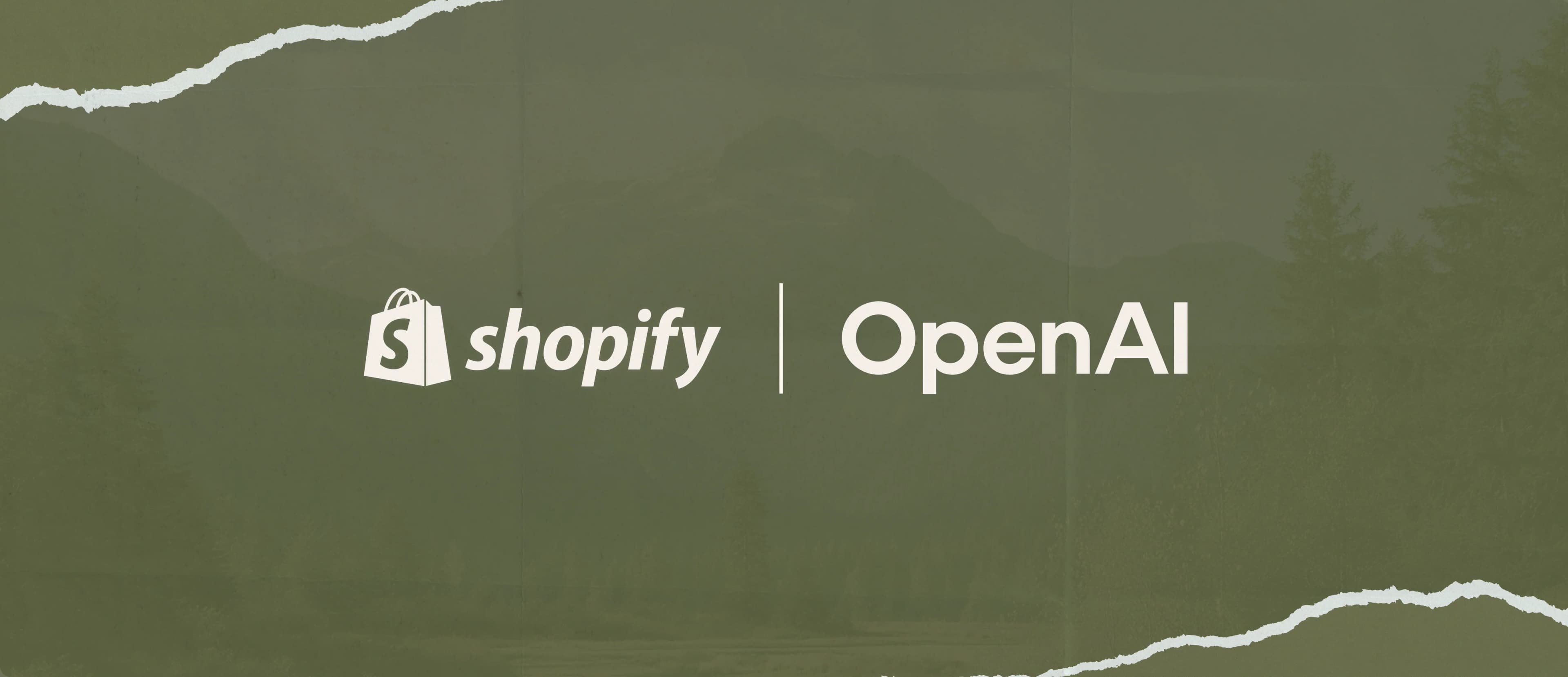BrightonSEO’s spotlight was on SEO AI optimisation this year. It isn’t much of a surprise to SEO marketers.
Engines like Google have rapidly adopted AI, fueling a trend of AI integration. SEO marketers were already unhappy about ads and paid content occupying real estate in the search results. Now, they also have to deal with the new AI overview panel.
The AI overview panel sometimes appears at the top of search results. It supposedly provides a concise, AI-generated answer to the user's query. SEO marketers are concerned that these overviews disincentives website visits, leading to fewer clicks on traditional organic listings. This has lead to the overarching question: How do you appear in an AI overview?
Looking at Google Trends, and searches for AI optimisation are up 566% since October 2021. The interest spike mirrors the growing importance of SEO AI optimisation in search marketing's future. News sites like Forbes reported that AI made 57% of all online content. The headlines reporting on the news decried this content as "AI sludge" and Forbes themselves stating that "AI was killing itself – and the internet".
BrightonSEO kicked off the day after Google's John Mueller spoke at Google Search Central Madrid. One of the things he directly addressed was the issue of how to optimise for AI features. SEO marketers know that whenever Google discusses an issue direcrtly, there is always something valuable to hear.
So what was the key takeaway from BrightonSEO? Will SEO be replaced by AI Optimisation or AEO (Answer Engine Optimisation)? Does AI-written content ruin your website's SEO AI optimisation techniques?
Want to talk to me about our SEO services?
Google's view of SEO AI optimisation (so far)
Questioning whether the future of SEO hinges on AI might seem dramatic. That exact question has dominated marketers' thinking worldwide. Google's John Mueller addressed what needs to be done to optimise for AI overviews.
John said that even though AI is becoming part of search there are not yet any special new optimisations needed. He did note, however, that the technology is evolving quickly, and we must be ready to adapt.
So what does this mean to SEO professionals keen on SEO AI optimisation? Simply put, our core approach need not shift. Quality content, user-friendly site structure and sound technical foundations are - still - crucial. This goes hand-in-hand with how Google's AI overviews favour simple and uncluttered information.
For optimise for Google's AI summaries, it's important to create content that is well-structured and high quality. This includes SEO best-practice mainstays: descriptive headers, bullet points and short paragraphs. This not only helps Google understand and summarise your page easily. It also follows search engine rules like E-E-A-T (Expertise, Experience, Authoritativeness, and Trustworthiness) which is still key for good SEO AI optimisation.
SEO AI optimisation: the long-term value of basics
LinkedIn is rife with claims that AI-based features will render "old SEO" obsolete. The truth is that sound SEO principles continue to be the foundation of successful sites. Even with AI features, the basic rules of good SEO are what make SEO AI optimisation work well. If your website is easy to use, relevant, and well-organised, you're already undertaking AI optimisation.
Search engines and large language models like a site that is predictable. That's exactly why schema markup is so useful for AI optimisation. Schema gives context to your pages, helping search engines to comprehend product information, contact information and much more clearly. In its rightful application, it will even get your content displayed on AI overviews.
But the question of AI is more complicated than how to optimise for it. Does AI content harm your website? What are industry experts reporting?
Applying AI as a tool in maximising SEO optimisation
Amidst all the frenzy surrounding generative AI, we need to see it for what it really is. Generative AI is a tool. It can help you generate ideas for content, lighten your research load and refine user experiences. But, great power comes with great responsibility.
AI tools should not eliminate human control. Fact-checking content generated by AI is still a requirement. This is doubly true if your site is based on subjects where accuracy is required for maintaining trust.
How do you build trust in the era of AI SEO?
Trust was at the top of people's minds when it comes to AI and SEO.
Ahrefs' Ryan Law shared some interesting statistics regarding the role of AI in site traffic.
As of January 2025, 78.4% of content that had been published had been recognised as AI-generated in one way or another.
46% of marketers feel that AI content reads just as well as human-written content.
It is no wonder then that many businesses are turning towards automated tools for faster content generation. However, transparency is an issue with AI content creation.
Research was cited by Laura McInley of Oban International, presenting that, though 38% of consumers generally have a favourable opinion of AI, trust across demographics is far more variable. She gave examples where brands were caught using AI, and how that damanged their image.
The good news is that publicly crediting AI-produced content can build user trust. Laura cited studies where brands being openly honest about your use of AI dramatically enhance user sentiment towards them. This can, in turn, enable your brand to stand out and make readers feel assured that you're not concealing something, potentially boosting your SEO AI optimisation results.
Google are fairly even-handed about this in their guidance about AI-generated content. Google's focus is on the quality of the content, regardless of how it is produced. Their guidelines emphasise rewarding original, high-quality, people-first content that demonstrates E-E-A-T. Building trust, including being transparent about using AI to create content, is a fundamental element of SEO AI optimisation.
(And, for the purposes of aforementioned clarity, I used Gemini to help me structure the outline of this blog!)
Is AI content creation a valid SEO tactic?
Returning to Ryan Law's wonderful "Everything your boss wants to know about AI search", the ahrefs data scientists had more insights to share.
He noted that AI overviews appear to be impacting click-through rates, with a reported 30% reduction. Interestingly, these overviews typically show up for informational queries. These are things such as think-pieces and how-to guides, and not necessarily users with buying intent. At Unified, I've also noticed that ChatGPT and other large language models are more likely to the homepage than any product or category channels.
One key takeaway is that AI chatbots are currently driving only a limited fraction of overall website traffic. He noted that this is bound to increase as AI is increasingly integrated into typical search behaviour. One way or another, this will influence future SEO AI optimisation trends.
Make sure to incorporate these practices in cases where you want to produce AI-written text as part of your SEO AI optimisation policy. Keep the data up-to-date, get it accurate, and add author profiles to improve validity.
Quality not quantity: the lessons learned from programmatic SEO
Using AI to publish content at scale came up in several of the talks I attended, but I can’t say that I walked away convinced of the validity of the tactic.
If nothing else, Google's March 2024 Update highlighted programmatic SEO methods. In line with its advice, penalisations for scaled content abuse and overall domain manipulation have increased, as per its guidance. In other words, while programmatic methods can seem efficient, they also risk inundating the web with low-quality pages.
Answering questions directly and concisely is still one of the best ways to please both users and search engines for effective SEO AI optimisation. If you’re using generative AI to create content, don’t lose the human touch of close quality control. If you absolutely must use AI to populate large chunks of your website, look at it from the perspective of quality over quantity. But in truth, the long-term risks hardly seem worth the short-term rewards.
The Future of SEO AI optimisation
The overarching message from BrightonSEO was not that AI was taking over SEO. Rather, that it is adding new layers to an ongoing evolution of SEO practice. If you maintain your high standards in content creation, in website design and user experience, then you're already well placed to cope with whatever changes AI might introduce to SEO optimisation.
To paraphrase SEO superhero Lily Ray from her keynote: traffic from ChatGPT is SEO traffic. Traffic from AI overviews is SEO traffic. SEO professionals need to recognise and claim that.
In the future, transparency and experimentation will be the formulas for successful SEO AI optimisation. Google has always favoured content written for the user, not the algorithm. A union between human guidance and AI efficiencies will likely be the recipe for successful long-term SEO AI optimisation. SEO has always demanded flexibility, and the advent of AI is just another chapter in that story.
Combining AI tools with SEO best practice is the key to successful SEO AI optimisation. It will not only rank you higher but will also be better read and result in long-term trust. That is an optimisation for a future worth striving for.

I’m hands-on with our client’s SEO from inception, to strategy, right the way to implementation. It’s my job to keep my finger on the pulse of what’s new in SEO industry and make sure we stay on the cutting edge.




